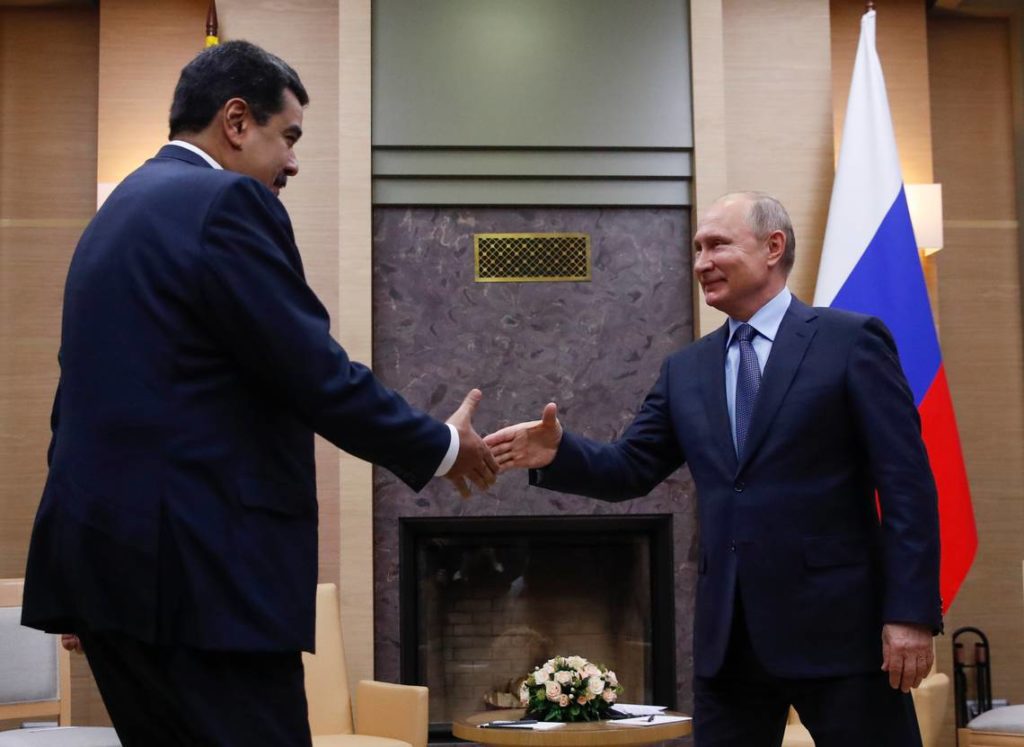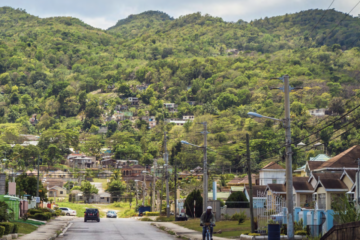Hugo Chávez was elected as President of Venezuela in 1998 on a promise to initiate the ‘Bolivarian Revolution’, named after Simón Bolívar who lead the fight for Venezuela’s independence from imperial Spain. The revolution pledged to reduce poverty, hand power from Venezuelan elites to the excluded masses and conduct a foreign policy which would ensure Venezuela’s independence. Throughout his 14 years in office Chávez was adored by many Venezuelans and since his death in 2013 has become something of a national myth. Poor Venezuelans especially identified with his humble background and appreciated his undeniable charisma as well as the social programmes he established to combat poverty. Nonetheless, the roots of the current crisis lie in numerous policy failures which took place during Chávez’s presidency. For this reason, Maduro cannot bear the entirety of the blame for the situation in which Venezuela now finds itself, although he certainly has exacerbated it.
The first policy misstep was the failure to diversify Venezuela’s economy from its traditional reliance on its oil resources. Under Chávez the share of oil as a percentage of Venezuelan exports grew significantly from 81 percent in 1999 to 97 percent in 2013 according to World Bank data. State control of the oil sector through Petróleos De Venezuela S.A. (PDVSA) meant that during the boom in oil prices from 2000 to 2008 the government was able to use oil revenue to fund Chávez’s social programmes known as the ‘missions’. However, increased dependence on a single commodity meant that Venezuela would be increasingly vulnerable to price shocks such as those which hit the country in 2008 and 2014.
A second failure was the mismanagement of government income from oil and increasingly throughout Chávez’s presidency, loans from China. If Maduro’s term is also taken into account, China has lent over US$50bn to Venezuela. The missions, which included expanding medical coverage, social housing and free education, helped to reduce poverty from 49 percent in 1998 to just under 30 percent in 2013 according to the World Bank, although rates fluctuated throughout this period. They also contributed to the political and social inclusion of previously marginalised Venezuelans for the first time. However, government funds also went towards less than essential projects to internationally promote Venezuela according to cynics, Chávez himself. These included subsidising poor Londoners’ public transport and providing heating oil assistance for less well-off New Yorkers. More significantly in dollar terms was the government’s deal with Latin American allies to supply them oil at favourable rates with generous payment terms. The most distasteful destination of public money however was the pockets of government officials. In spite of Chávez’s 1999 campaign promises to the end corruption which existed under previous governments, by 2013 Venezuela was ranked in the top 20 most corrupt countries according to Transparency International. Misspending under Chávez came at the expense of saving for difficult times ahead and diverted funds from essential investment in PDVSA. According to Bloomberg, the state oil company’s output in 2018 was the lowest since 1990 which reflects underinvestment in infrastructure as well as the exodus of PDVSA employees due to insufficient wages.
A third disastrous policy first enacted under the Chávez’s government was imposing price controls on basic goods. This measure was first introduced in 2003 in order to ensure low costs for poor consumers in periods of high inflation. However, the policy has consistently lead to shortages in Venezuelan supermarkets and pharmacies because producers decided that selling their goods at the capped prices was not sufficiently profitable. A second unintended consequence was that the Venezuelan black market, where costs are higher but goods are available, blossomed during these periods of price controls. Under Maduro the combination of hyperinflation, which the International Monetary Fund predicts will reach 10 million percent in 2019, and food shortages has meant that in 2017 89 percent of Venezuelans reported that they were unable to buy food enough to eat.

Under President Maduro, Chávez’s policy failures remain unreversed and have been accompanied by increased political repression. In the Chávez era the practice of participatory democracy through referenda enabled the government to erode checks and balances such as presidential term limits. Nonetheless, Chávez won three elections which were generally accepted to be legitimate and conceded defeat when he lost a referendum on constitutional change in 2007. Maduro on the other hand, decided to simply ignore the National Assembly following the opposition’s victory in the 2015 legislative elections and supplanted it in 2017 with a Constituent Assembly filled with chavistas. Opposition leaders have been jailed and intimidated and Maduro’s re-election in 2018 was widely denounced as a neither free nor fair election. President Maduro’s grip on power relies primarily on the military whose loyalty is guaranteed through their access to state funds. Outside powers may also be increasingly important in suppressing dissent with reports of Cuban military advisors and most recently, Russian mercenaries being sent to protect Maduro personally.
As Maduro’s regime celebrates the 20 year anniversary of the initiation of Bolivarian Revolution this February it is important to reflect on how the mistakes of the Chávez era have contributed to the suffering of the Venezuelan people today. As Venezuela enters yet another year of crisis and hardship the early promises of the Bolivarian project feel very distant.


